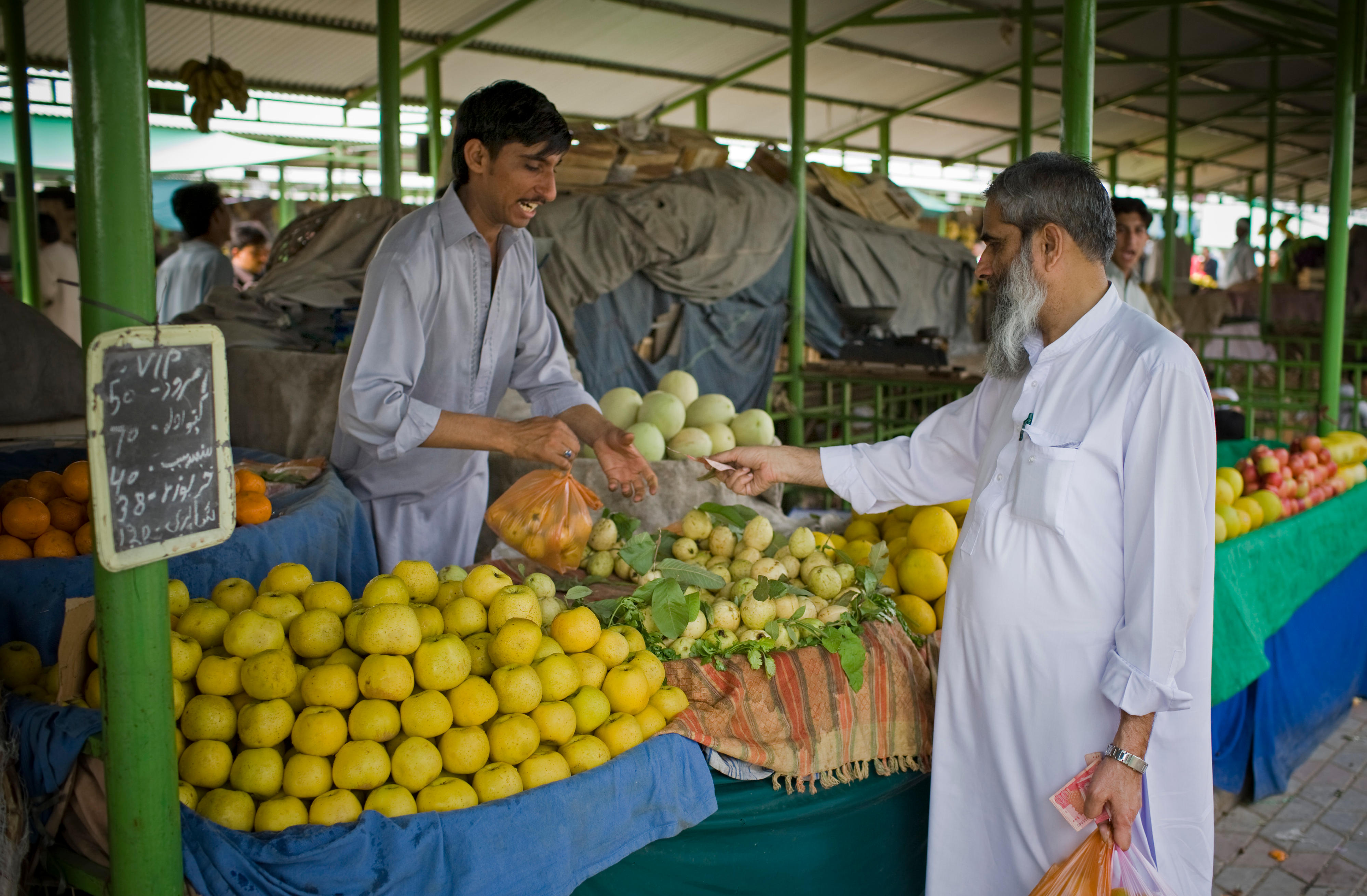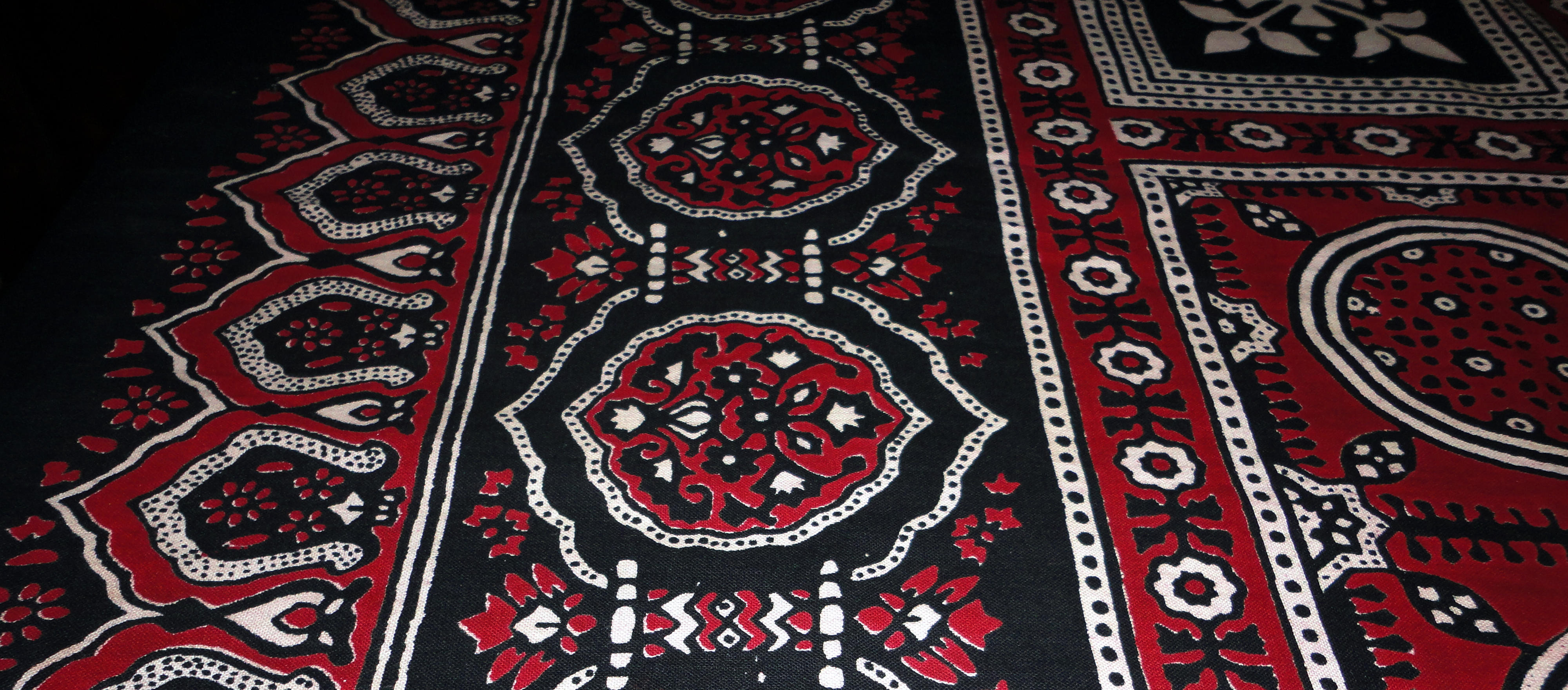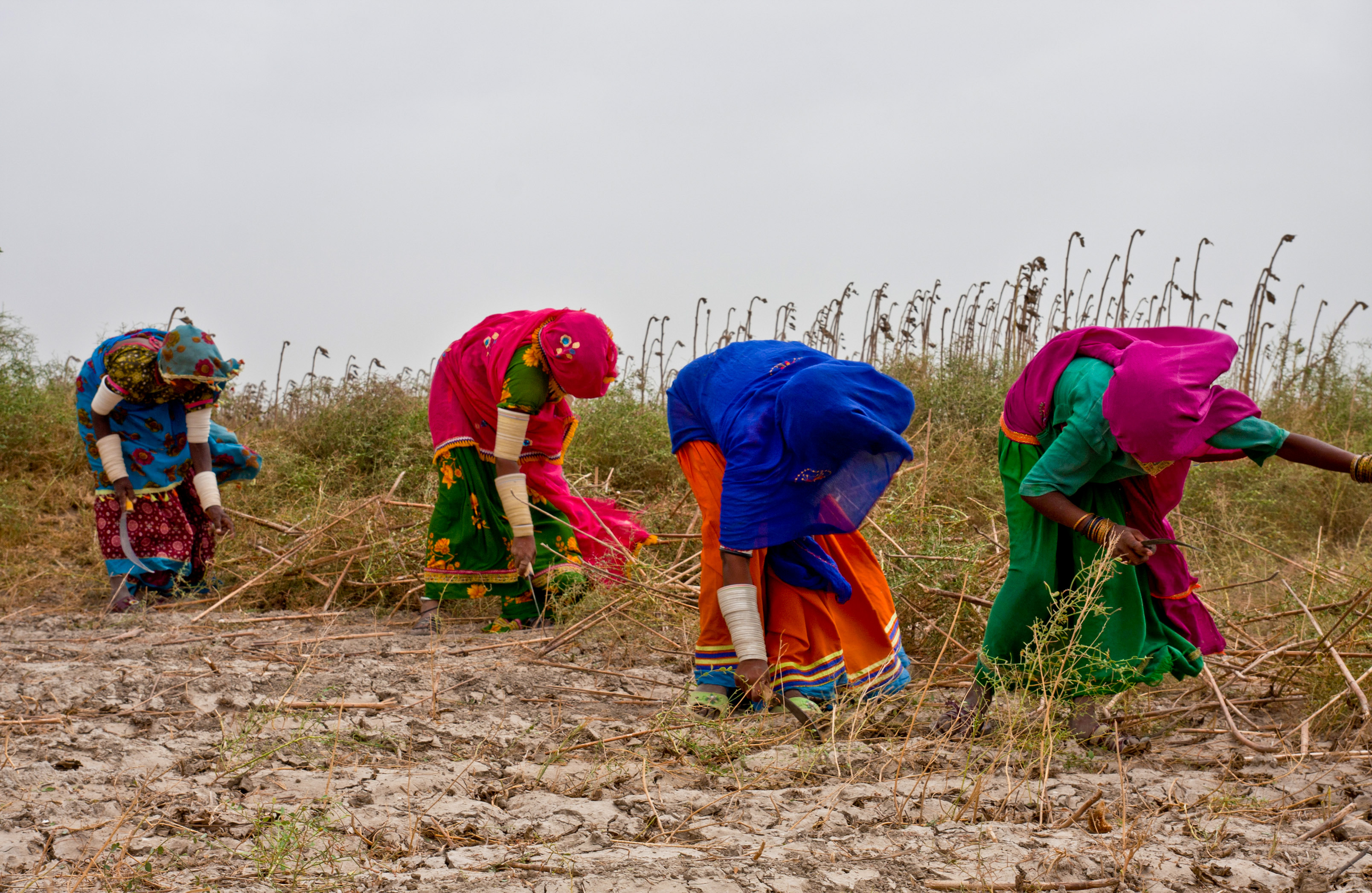Market in Islamabad, Pakistan
Copyright© Thomas Imo/photothek.net
Pakistan: Local micro insurance InsuResilience Investment Fund provides support for local institutions
Disastrous floods, which are occurring more and more often, have displaced millions of people in Pakistan during the last few years. Moreover, significant damage has been caused by severe drought, especially in Balochistan Province. People in Pakistan who are living in poverty are most affected by climate change, as they depend on natural resources and have little capacity to adapt to climate change.
The agricultural sector plays a key role in Pakistan's economy. It accounts for nearly 20 per cent of gross domestic product (GDP) and employs 42 per cent of the workforce (as at 2017/18). The livestock sector (which accounts for almost two thirds of the agricultural share of GDP) is mainly in the hands of some 8.5 million smallholders and landless families, for whom livestock typically forms the only source of livelihood in rural settings.
Extreme weather has negative impacts on livestock farming, for example directly through extreme heat or indirectly through changes in the overall ecosystem. The consequences may include reduced agricultural productivity, impaired livestock health due to lack of feed, lower water quality and the spread of diseases.
In September 2018, the InsuResilience Investment Fund (IIF) made an equity investment in the Kashf Foundation, a non-profit enterprise set up in Pakistan in 1996. Kashf offers microfinance services within the framework of a lending scheme for individuals that focuses on low-income households and small enterprises, with special emphasis on women, who make up 99 per cent of Kashf's clients.
When the equity investment was made, Kashf had previously introduced a pilot product through which farmers can finance livestock and simultaneously get multi-risk insurance, including for natural disasters. Benefits are paid out to farmers if their cattle die as a result of a natural disaster.
The IIF financing was geared towards adding a climate insurance component to the portfolio of livestock loans for farmers. Thanks to the IIF funding, Kashf was able to launch the product in 23 branches in Punjab Province.
As at: 20/09/2022


